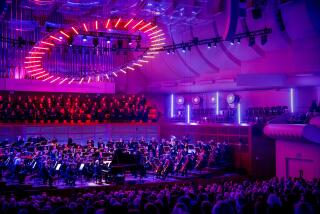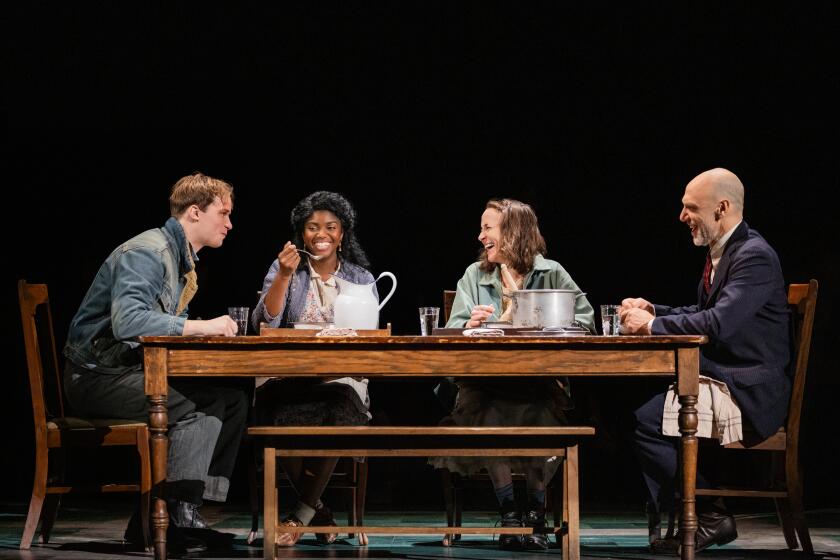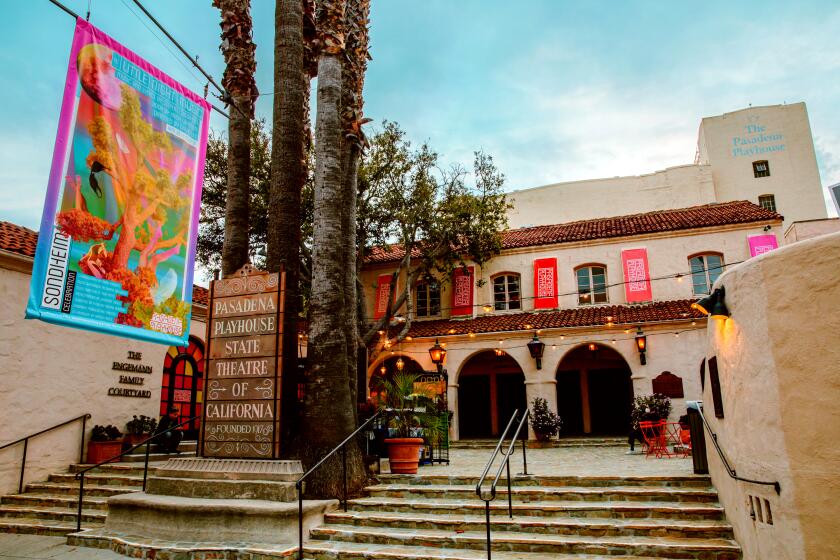MUSIC REVIEW : More Technique Than Substance in SONOR Show
A few years ago, critics christened the new wave of surprisingly tonal avant-garde music the “new Romanticism.” If Wednesday’s SONOR concert at UC San Diego’s Mandeville Auditorium is indicative of current trends, the accessibility of the new Romanticism remains, and the “new virtuosity” has arrived as its mail-order bride.
Indeed, no sane performer would undertake Frederic Rzewski’s 1991 Piano Sonata or the solo piano part in Rand Steiger’s 1986 Double Concerto--the program’s two main offerings--without possessing a formidable keyboard technique.
Both composer Rzewski, who gave an authoritative account of his own sonata, and UCSD pianist Aleck Karis, who soloed with UCSD percussionist Steven Schick in the Steiger concerto, demonstrated their significant keyboard abilities.
On the plus side, this listener-friendly showmanship may win back the audience alienated by the Angst-ridden scores of the 12-tone and post serial decades.
Unfortunately, Wednesday’s concert tended to exalt technique over substance, display over depth. It is tempting to dismiss these recent works, especially Steiger’s concerto, as new music lite.
Steiger’s structures are paragons of balance, his orchestration deft, and his overall sonic tapestry even brilliant. But as that great musicologist Peggy Lee once observed, “Is that all there is?” Steiger’s Double Concerto, 30 players divided into two orchestras, each one supporting a soloist, proved curiously lacking in inner tension and development of ideas.
Although Rzewski’s densely plotted Piano Sonata is no featherweight, hearing the recent work brought on deja vu .
Was this driving, effusive essay with its grand improvisatory air some fragment of Rachmaninoff with a mustache penciled on, like Marcel Duchamp’s celebrated gloss on an image of the Mona Lisa? (Here the mustache consisted of abrupt glissandi and massive forearm clusters.) Or was it a parody of Charles Ives keyboard collages with “Ring Around the Rosy” and the 14th-Century popular song “L’Homme Arme” substituted for Ives’ 19th-Century church hymns and parlor songs?
The premiere “Nightmare at the Best Western” by George Lewis, a recent arrival to the UCSD stable of composers, opened the concert on a humorous note.
Lewis had baritone Philip Larson intone a litany of moral platitudes and political cliches, e.g. “no goose, no golden egg,” to an all-purpose neoclassical accompaniment of six instruments.
This agitprop exercise targeted the banality of contemporary political discourse and the mores of the men’s movement. Larson ended the piece by drumming lamely on a large cardboard box and then being comforted by flutist Jon Fonville. At UCSD, that hotbed of unreconstructed Marxists, surely his was a case of preaching to the choir.
More to Read
The biggest entertainment stories
Get our big stories about Hollywood, film, television, music, arts, culture and more right in your inbox as soon as they publish.
You may occasionally receive promotional content from the Los Angeles Times.






